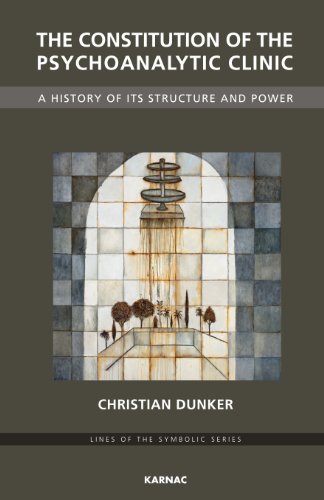The Constitution of the Psychoanalytic Clinic: A History of its Structure and Power

Book Details
- Publisher : Routledge
- Published : 2011
- Cover : Paperback
- Pages : 436
- Category :
Lacanian Psychoanalysis - Category 2 :
Psychoanalysis - Catalogue No : 26711
- ISBN 13 : 9781855756465
- ISBN 10 : 1855756463
Reviews and Endorsements
'Never before has the history of the psychoanalytic clinic been covered so comprehensively and with so much critical insight. In this landmark volume, Christian Ingo Lenz Dunker demonstrates how the emergence and development of psychoanalysis as a clinical practice cannot be understood without taking account of the detailed and extensive philosophical debates on subjectivity and mental healing that preceded it. The Constitution of the Psychoanalytic Clinic does for the principles of psychoanalytic treatment what Henri Ellenberger did for dynamic psychiatry in The Discovery of the Unconscious: encyclopaedic yet critical, the author offers the defining historical account of a clinical discipline, which is sufficiently polemical so as to be not definitive and, thus, give psychoanalysts, sociologists, and cultural historians a new object of study for generations to come.'
- Professor Dany Nobus, Brunel University
'If we are interested at all in what constitutes the proper study of the historical evolution of the practices that characterize psychoanalysis, then we take a couple of things seriously: Freud's remark that we should study the history of civilization, mythology, the psychology of religion, literary history, and literary criticism, and Lacan's idea that we add rhetoric, dialectics, grammar, and poetics to that list. With this giant of a book, Chris Dunker ticks all those boxes in this beautifully sketched archaeology of the types of knowledge that make possible the emergence of psychoanalysis on the one hand and genealogy of its practise on the other.'
- Carol Owens, Psychoanalyst, Dublin
'Why has psychoanalysis been exempt, until now, from any sustained archaeological and genealogical enquiry? What are the fissures, "the zones of instability", in the discourse of psychoanalysis? Are ethics and power always constitutively separated? What power and influence do psychoanalysts have over their analysands? What of psychoanalysis' "counter-power"? And what of the possibility of freeing ourselves from ourselves? Dunker's scholarly analysis of the structure and constitution of the clinic is a welcome contribution to the discourse of psychoanalysis. It is a work of considerable depth, and essential reading for anyone who has any engagement with psychoanalysis and is concerned with the consequences and possibilities of its power.'
- Simona Revelli, Psychoanalyst, London

